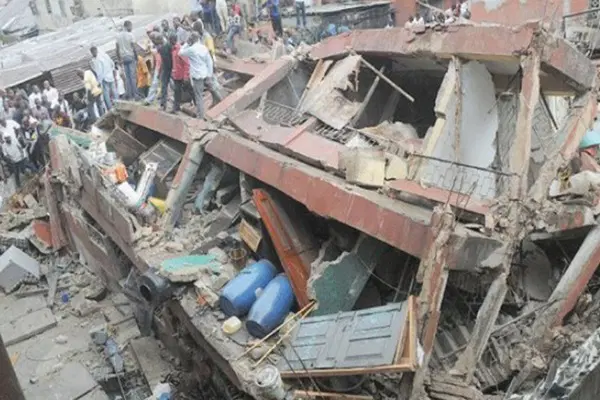The Federal Ministry of Housing and Urban Development has voiced serious concerns over the increasing incidents of building collapses across Nigeria and has pledged to enforce strict penalties on individuals and organizations that violate building codes.
Speaking in Gombe on Monday at the opening of the 13th National Council on Lands, Housing, and Urban Development meeting, the Ministry’s Director of Planning, Research, and Statistics, Mohammed Bala, outlined the government’s determination to tackle this persistent issue. The meeting, themed “Housing the Future: Affordable Housing for Economic Growth, Climate Resilience, and Urban Development,” brought together experts and policymakers to address housing sector challenges.
According to Bala, the Federal Government is committed to minimizing building collapses, which continue to cause significant loss of life and property. He stated, “Building collapse is not only a structural issue but also a grave risk to human lives. It’s crucial to prioritize the safety of residents by addressing this issue thoroughly.”

Bala explained that the National Council, the highest policy-making body for lands and housing, had gathered input from over 60 organizations on housing and urban development challenges, leading to the identification of eight critical areas for policy reform, including the enforcement of building standards.
Highlighting recent incidents in Jos, Lagos, and Abuja, Bala attributed many collapses to non-compliance with building regulations and the use of substandard materials. “The problem of building collapse is very serious,” he noted. “President Bola Tinubu has strongly addressed this, and the Minister of Housing and Urban Development, Arc. Ahmed Musa Dangiwa, has set up a dedicated committee to establish strict building codes.”
Bala assured that the council meeting would include sessions dedicated to addressing building collapses, with experts presenting solutions to prevent future tragedies. He emphasized that policies arising from these discussions would be implemented nationwide to enhance building safety standards.
In addition, Bala mentioned the recent establishment of a housing tribunal, which will expedite cases of code violations. He stressed that offenders would face tough sanctions, and that the government would no longer tolerate non-compliance with building laws.
Gombe State Commissioner for Works, Housing, and Transportation, Usman, also addressed the gathering, noting the role of affordable housing in driving economic growth, mitigating climate change, and fostering sustainable urban development. He highlighted the state’s 2024 budget allocation for housing infrastructure, including partnerships with the North-East Development Commission and Family Home Funds Limited to meet local housing needs.
This commitment aligns with Gombe’s Development Plan 2020-2030, which emphasizes resilient infrastructure and sustainable development. Usman affirmed the collective goal to provide safe, affordable housing for all Nigerians, reinforcing the government’s dedication to preventing building collapses.
The Ministry’s firm stance on enforcing building standards underscores a renewed urgency to protect lives and property and to promote a safer, more sustainable housing sector across Nigeria.



